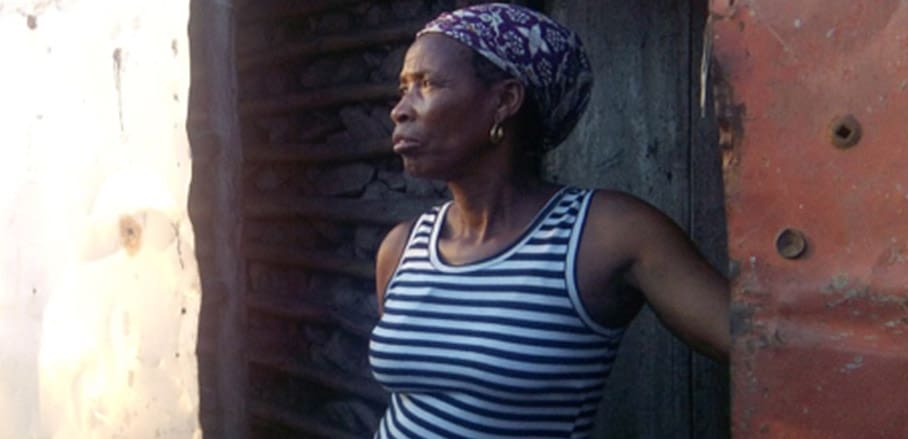Mozambique: Rehabilitation of the Chiveve River is improving the quality of life of Beira’s residents
by KfW Development Bank
In a four-part series, URBANET takes a closer look at specific projects that contribute to making cities more liveable. This second part describes how the coastal city of Beira in Mozambique mitigates floods and other climate change-related natural disasters, which usually effect the poorest communities the most severely. By rehabilitating the Chiveve River, the situation has improved significantly.
The city of Beira is situated in a bay in Central Mozambique where the Pungue River flows into the Indian Ocean. Its population of almost 600,000 residents have a special relationship with the ocean, with the city’s economy built around fishing and commerce in the large harbour. However, the ocean also presents dangers. More specifically, climate change is putting the coastal city at increased risk of storm surges and coastal erosion.
Poor residents are the ones feeling the consequences most severely. Cheizin Mussa, who lives in the fishing settlement of Praia Nova, reports that a large area of shoreline in that community has now been claimed by the ocean and that her house is at imminent risk of collapse due to wave damage. Asked why the coast is undergoing so much change, she replies: “It’s getting warmer and the ocean’s getting closer and closer.” Climate change is now a familiar term to all of Beira’s residents.
The historical town centre is bordered by unplanned, informal settlements which have sprung up around it. One such settlement is Goto, which has arisen in a central location on the bank of the Chiveve River and now has over 10,000 residents. Chaimel Calido, an 18-year-old apprentice welder living in Goto, explains that rainfall has become heavier and heavier in recent years and that the neighbourhood floods regularly. “We have to wade through the mud to get to work without rubber boots. The children are falling ill with diarrhoea, headaches and malaria,” says Calido. Beira’s mayor, Daviz Simango, reports that there are cases of malaria and cholera and that many people have to leave their homes in the rainy season because they are under water or have been destroyed.
In order to reduce the flood risk in Beira, German financial cooperation actors are currently providing EUR 13 million in funding to support the rehabilitation of the Chiveve River, which is a tidal watercourse. The Kreditanstalt für Wiederaufbau (KfW) has been commissioned with the implementation of this project, which involves dredging the 3.7 km section of the river running through central Beira to remove rubbish and sediment, and building a tidal defence system. This measure will serve to restore the drainage function of the Chiveve River, allowing rainwater from places such as Goto, which is situated at the river’s headwaters, to flow more rapidly into the ocean. By avoiding the accumulation of stagnant water, this is an effective way of preventing related diseases from developing.
The impact of the project has been boosted further through partnerships. Examples include a cooperation arrangement between GIZ and a local grass-roots organisation (ADEG) to improve waste collection and rainwater drainage in Goto, and another between GIZ and a local non-governmental organisation (ADEL) involving mangrove reforestation.
At an overall level, the project is increasing Beira’s resilience to the consequences of climate change. Work to restore the Chiveve River’s natural drainage function is improving the city’s ability to adapt to changes caused by climate change (torrential rainfall and rising sea levels). In this way, the project is laying key foundations for the further development of the city centre area as a whole.
In a second phase, German financial cooperation actors plan to work with the World Bank to rehabilitate the green spaces along the banks of the Chiveve River. An urban park will be built to protect the mangrove-lined section of river from ongoing urbanisation and littering, provide the population with a sustainable recreation area, and create economic incentives in the surrounding urban area. Investments are planned to promote the rehabilitation of formerly neglected green spaces that were previously used on a largely informal basis. This rehabilitation work will include the expansion of walkways and cycle paths, the construction of pedestrian bridges, playgrounds, sports facilities and a restaurant, and the installation of public lighting. The project will also involve climate change mitigation measures in the area of landscaping, such as the re-cultivation of endemic plant species, which, along with the retention of the Chiveve River’s natural drainage function, plays a key role in promoting climate change adaptation capacity.
- Mozambique: Rehabilitation of the Chiveve River is improving the quality of life of Beira’s residents - 9. December 2016
- From a shack to a house with water and electricity - 6. December 2016
